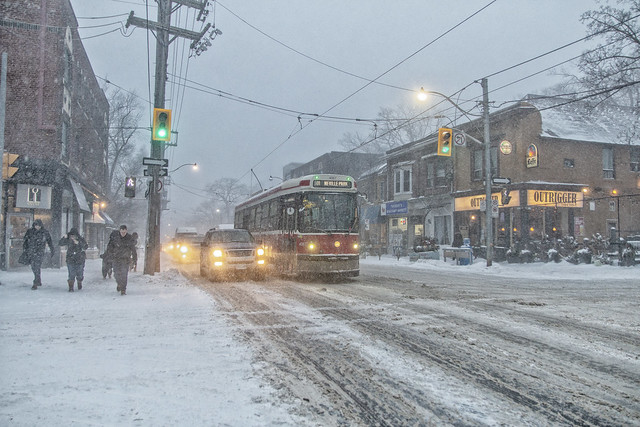Living in Toronto during the five years of my graduate studies felt incomplete. I am not referring to the incompleteness of an unfinished story or an interrupted episode, but an incompleteness that would persist with any length of time. Because of that incompleteness, which is not in length, but in width or depth, leaving Toronto did not feel like losing something that belonged to me. It did not feel like a sudden distancing of something that was nearby.
I have many memories of those five years, but most of them seem like memories from the periphery of a life, not from its center, not connected to its foundation. I had short-lived friendships and fleeting romances, absent-minded adventures, as if I was protecting my status as a stranger in the city. A stranger with a light and minimalist existence, ready to move on at a moment’s notice. My friends who visited my apartment—and not many did—expressed surprise at how little I had there. Some books, a bed, kitchen stuff, a couch, a coffee table, my desk in the living room. I knew I had to leave if I wanted to stay in academia, and maybe that is why I did almost nothing wholeheartedly during the five years. Five years is a long time to live half-heartedly.
When I left Toronto, something strange started to happen. I started learning new things about the city. One day in a small library at Leiden University, I found the book, Methods of Theoretical Psychology, by Andre Kukla. I learned that Kukla was a Professor Emeritus at University of Toronto. I wondered how Kukla got along with the rest of the Psychology department. I couldn’t imagine him there, which meant I didn’t know enough even about the department where I had completed my graduate studies. I had other, similar discoveries. I met John M. Kennedy for the first time when I came for a job interview at UofT Mississauga, and we met once again a few years later when I was visiting from Macao. Outside of the world of academia, I would also hear mentions of Toronto. I’d hear about a movie being made in the city, or a concert, or an artist who lived there. I would occasionally communicate with friends and family members living in Toronto. I remember one day standing on the balcony of my apartment in Leiden, exchanging text messages with my brother, watching the birds, the cloudy sky, and the setting sun. All of a sudden I was completely overwhelmed by loneliness.

As time passed by, my heart slowly opened up to the city from the distance, the distance that kept growing after my move to Macao. I started discovering more–feeling more–about Toronto, though this time not as a stranger. I started thinking about what it would be like to live wholeheartedly in that city. As you could guess, this ran in parallel with my growing detachment and disenchantment from academia, or at least my place in academia. Even if your fate is to be out-of-place, there are better and worse places to fulfill that fate, better and worse places to feel placeless.
1 thought on “Remembering & Returning to a City”